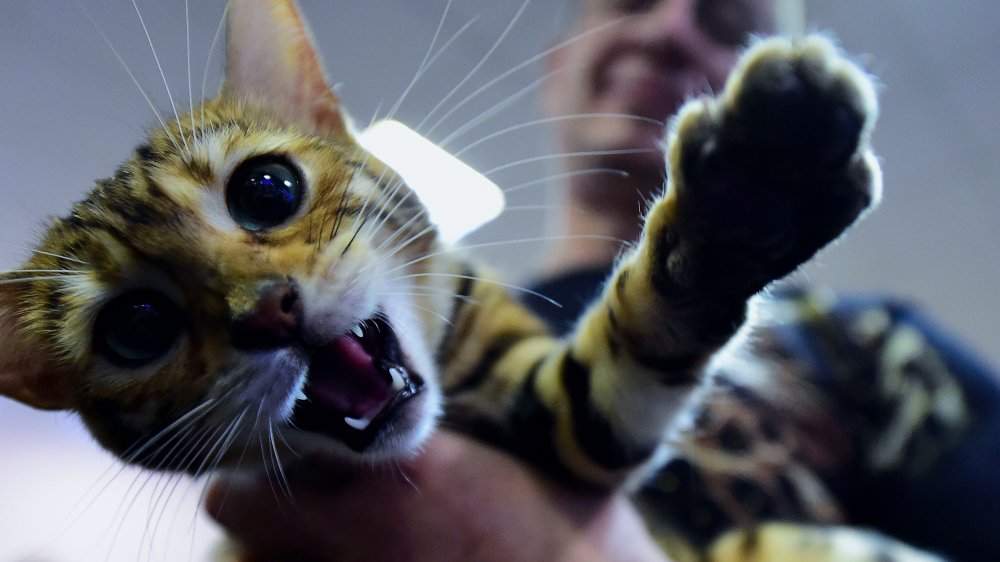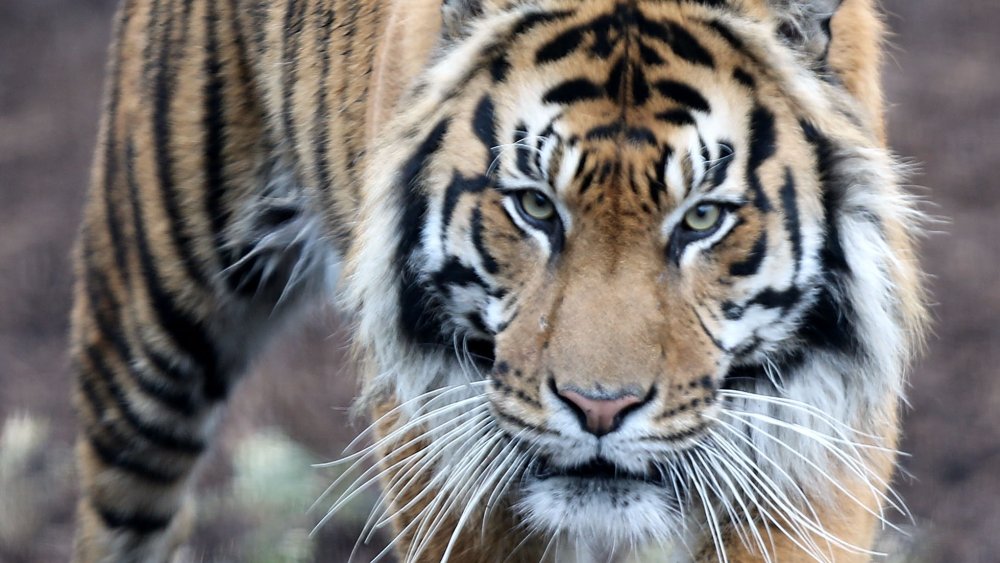The Most Dangerous Cat Breed To Own
In 2014, Lee Palmer of Portland, Oregon dialed 911 after a deranged attacker trapped him and his family in a bedroom. Per the Oregonian, the assailant was the family's 22-pound Himalayan cat, Lux, who "had a history of violence." The cat scratched Palmer's 7-month-old son on his forehead. Palmer's protective instincts kicked in, and he literally kicked the cat's butt. With that, the feisty feline became a raging bull and charged at the family. Even the family dog knew to steer clear of the peeved pet and hid with the Palmers in the bedroom.
Law enforcement subdued the furry perpetrator with the aid of a trusty police dog. Afterward, the family sought therapy, according to the Guardian. Obviously, that's a nightmare scenario for a cat-owner and probably a dream come true for Stephen King. It might also make you wonder whether Lux had cat-scratch fever or if Himalayan cats are deadly like Everest. Putting the question more broadly, which cat breeds are likely to try to turn your home into a pet owner cemetery?
Welcome to the jungle book
Obviously, deadly exotic pets like lions and tigers take first prize for the most dangerous cat breeds to own. According to Big Cat Rescue, a four-year study found that captive tigers are 500 times deadlier than dogs. Six out of the seven fatal tiger attacks reported in the U.S. between 1998 and 2001 "occurred in situations where tigers were privately owned or held in private facilities." So if you plan on having a pet Shere Khan and your name's not Siegfried or Roy, just keep in mind that your jungle cat might sink his teeth into the bare necessities of your life, such as your jugular.
Those of you who aren't interested in exploring a big cat's digestive system might want to know how dangerous different house cats are. John Bradshaw of the Anthrozoology Institute at Bristol University said, "It's extremely rare for a domestic cat to behave like" Lux the murderous berserker cat. Bradshaw suggested that Lux "has a screw loose." However, a domestic cat can also seem screwy "if a kitten doesn't encounter a human in a friendly context between the ages of three to eight weeks." At that point it's more likely to become feral. Certain breeds like Bengals are more naturally aggressive and will attack other cats. So, be sure to factor in how much violence you're capable of handling when adopting. If you've got 12 newborn babies to take care of, adopting a 22-pound Bengal cat is probably not the best course of action.

